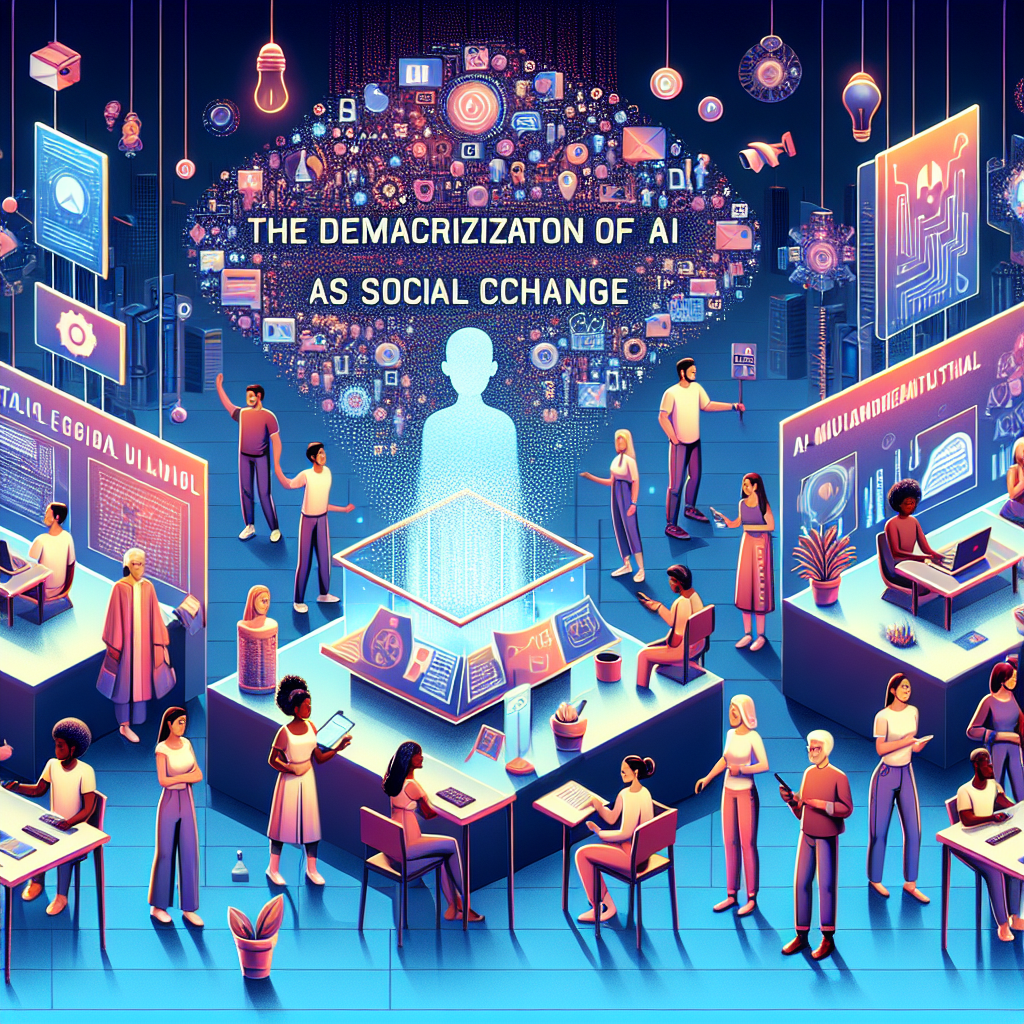The Democratization of AI: A Tool for Social Change
Artificial Intelligence (AI) has become increasingly pervasive in our daily lives, from personalized recommendations on streaming services to self-driving cars and virtual assistants. However, access to this transformative technology has been largely limited to tech giants and large corporations with the resources to develop and deploy AI systems. This lack of accessibility has created a digital divide, where those with access to AI technology have a significant advantage over those without.
The democratization of AI seeks to bridge this gap by making AI tools and technologies more accessible to individuals and organizations of all sizes. This shift towards democratization has the potential to empower communities, promote social change, and address some of the most pressing challenges facing society today.
Empowering Communities
One of the key benefits of democratizing AI is its potential to empower communities that have traditionally been marginalized or underserved. By providing access to AI tools and resources, individuals and organizations can harness the power of data and analytics to drive positive change in their communities. For example, AI-powered tools can help community organizations identify areas of need, develop targeted interventions, and measure the impact of their work in real-time.
In addition, democratizing AI can also help to level the playing field for individuals from underrepresented backgrounds who may not have access to traditional pathways into the tech industry. By providing access to training programs and resources, individuals can learn valuable skills in AI and machine learning, opening up new opportunities for economic empowerment and social mobility.
Promoting Social Change
AI has the potential to revolutionize the way we approach some of the most pressing social issues of our time, from healthcare and education to environmental sustainability and social justice. By democratizing AI, we can empower individuals and organizations to develop innovative solutions to these challenges, leveraging the power of data and technology to drive positive change.
For example, AI-powered tools can help healthcare providers improve patient outcomes, reduce costs, and increase access to care for underserved populations. In education, AI can personalize learning experiences for students, identify at-risk individuals, and support teachers in delivering high-quality instruction. In the fight against climate change, AI can help to optimize energy usage, reduce waste, and improve the efficiency of renewable energy sources.
Addressing Ethical Concerns
While the democratization of AI holds great promise for social change, it also raises important ethical considerations that must be addressed. As AI becomes more accessible, there is a risk that individuals and organizations may misuse or abuse this technology, leading to unintended consequences or harm. In order to ensure that AI is used responsibly and ethically, it is essential to establish clear guidelines and regulations for its use.
Additionally, the democratization of AI raises concerns about bias and discrimination in AI systems. If AI tools are developed and trained on biased data, they may perpetuate existing inequalities and reinforce harmful stereotypes. To address this issue, it is important to promote diversity and inclusion in AI development, ensuring that a wide range of perspectives and voices are represented in the design and implementation of AI systems.
FAQs
Q: What are some examples of AI tools that have been democratized?
A: Some examples of democratized AI tools include open-source machine learning libraries like TensorFlow and scikit-learn, as well as cloud-based AI platforms such as Google Cloud AI Platform and Microsoft Azure Machine Learning.
Q: How can individuals and organizations access democratized AI tools?
A: There are a variety of resources available for individuals and organizations looking to access democratized AI tools, including online courses, training programs, and community forums. Many tech companies also offer free or low-cost access to AI tools through their cloud platforms.
Q: What are some potential challenges to the democratization of AI?
A: Some potential challenges to the democratization of AI include concerns about data privacy and security, as well as the need for greater transparency and accountability in AI systems. Additionally, there may be challenges related to the ethical use of AI, such as bias and discrimination in AI algorithms.
In conclusion, the democratization of AI has the potential to empower communities, promote social change, and address some of the most pressing challenges facing society today. By making AI tools and technologies more accessible to individuals and organizations of all sizes, we can harness the power of data and analytics to drive positive change in our communities and beyond. However, in order to realize the full potential of democratized AI, it is essential to address ethical concerns, promote diversity and inclusion, and establish clear guidelines for its use. With the right approach, AI can be a powerful tool for social change and a force for good in the world.

